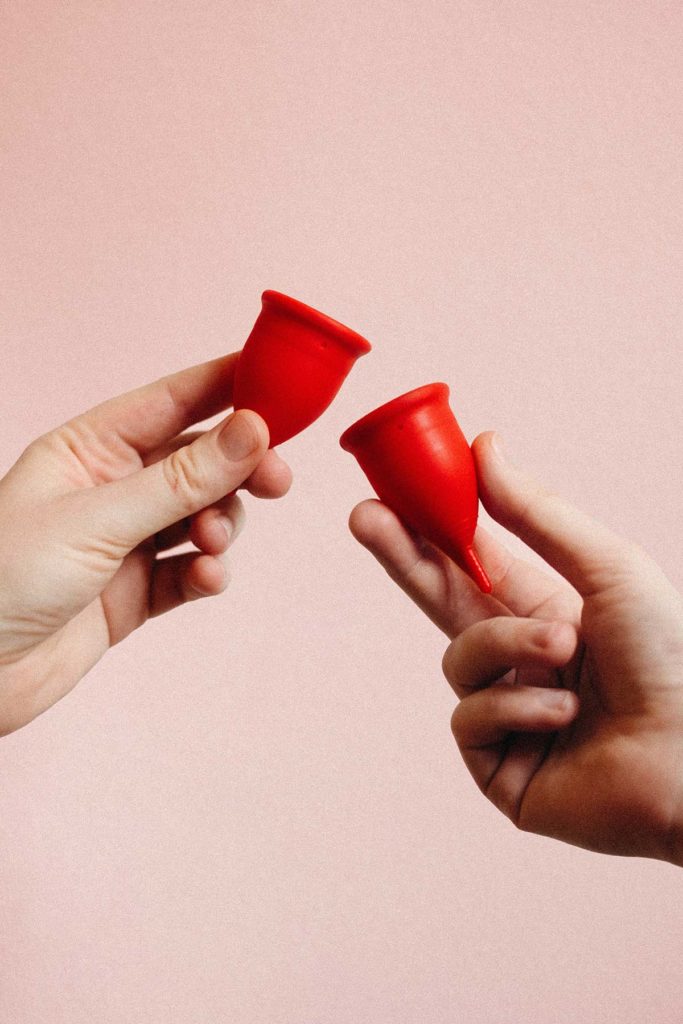
If your period causes you problems, welcome to womanhood. From the first moment things started flowing, it feels like it’s been a constant battle to “normalize.” Looking for that textbook 28-day cycle that’s not too heavy or too light – whatever that means.
The perfect menstrual cycle that appears to be happening on the pill, but even that isn’t a real period. It just mimics that textbook style we’ve all been looking for.
But what if the abnormality between your cycles is actually normal?
Don’t get me wrong, we need to understand when the abnormal is not normal and when in fact, it’s just a change in your body. I hope to explain that here.
DISCLAIMER: if you have questions or concerns with your period, it never hurts to bring it up with your OBGYN. As we all know, there is no textbook, black and white answer. In the world of your ovaries and uterus, it’s always grey.
Here are seven things you must know about your period.
1. It’s okay that your period changes.
We’ve long heard about a 28-day cycle and the perfect flow. Not too heavy or too light and the exact right color. You may find yourself analyzing everything about your cycle, comparing it to the last, and jumping to conclusions that something must be wrong. But the reality is, your cycle will change, and assuming it to be the same is against how the body works.
Like all things in your body – your menstrual flow works based on a perception of the environment.
How you feel, what season it is, and what you do in between menstrual cycles changes what happens next time. This isn’t wrong. It’s normal. What you need to know is your period will change. Especially during seasonal changes or high-stress lifestyle seasons. Like that first period after Christmas or when the weather changes.
2. There is more to your cycle than menstruation.
Your menstrual cycle is not just when you’re menstruating. I know we make that so confusing, but it’s a full cycle with four phases ranging from 21-36 days.
The four phases of the menstrual cycle are:
- Follicular Phase
- Ovulation
- Luteal Phase
- Menstrual Phase
If you pay attention, you should feel a difference. And if you can’t, I’d recommend a period tracker to help you understand where you are in your cycle. Each different phase requires a different load of nutrients and energy. And how you provide in this way changes how you respond during menstruation.
Here are a few trackers that I recommend: MyFloTracker and Clue
3. You should avoid skipping your period.
Skipped periods are something worth avoiding. Long term, ovulation is the key to female health and vitality.
There are many reasons women skip their period, whether stress, weight issues, or even birth control, it is not ideal. Of course, it can be annoying and something you dread, but your period is a vital part of your health. Avoid skipping your period, and if you feel like you haven’t had a period in a while, this needs attention.
4. Birth Control won’t fix your problems.
Birth control can fix your conception fears, but it can’t fix your hormonal problems.
I know we’ve long heard about the fantastic ability of birth control to fix your hormonal issues, but it doesn’t. It takes away the hormonal flow in the first place, masking the hormonal problems while you’re on the pill. But long term, this can lead to deficiencies that lead to energy issues.
Take time to care for your hormones, regulating them without masking them. Long term, you won’t regret it.
5. Period hygiene is important.
Periods are messy, time-consuming, and a pain. But period hygiene is essential. Your vaginal microbiome (yes, even that space has a host of good bacteria) changes during menstruation, making you more prone to bacteria and infections with fewer mucus secretions and lubrication.
Make sure you’re taking plenty of showers keeping your feminine parts clean. Be careful of soaps that change your pH. And change your feminine products regularly. I recommend staying away from feminine products that contain synthetic ingredients and fragrances. Both of which can disrupt your healthy bacteria at a time when it’s already fragile.
If you want to take a more natural route, try a menstrual cup or natural feminine products. Here are some of my favorites: menstrual cup, period panties, organic tampons, organic panty liners
6. PMS is normal, but that doesn’t make it healthy.
PMS is normal, that is for sure. Most women at some point or perhaps continuously suffer from PMS. But just because it’s normal doesn’t make it healthy.
Rather than thinking your symptoms are the problem, look at them as a communication channel. Informing you that something is not right. All symptoms are biofeedback markers of communication that help you recognize when there is a problem.
So no, PMS is not normal, and you shouldn’t have to live with it. There is a way to fix PMS, which happens by paying attention to your energy levels and providing more of what your body needs.
7. Your hormones aren’t the problem.
Hormones are not the problem – even though they get a bad rap. We’re a people consumed by changing our hormone flow to change our outcome. And it works because our hormones are a communication network of the body. If you can hack the message, you can change the outcome.
But your hormones are not responsible for the message being sent. They’re the messenger. Making it difficult to track hormones because they’re always changing based on the message sent.
To heal our hormones, we have to go back and understand what message is our body sending and why is it sending that? When you dive in, you’ll most likely find it’s either a survival response or a thriving response, both of which we can change or at least influence to see a better response.
